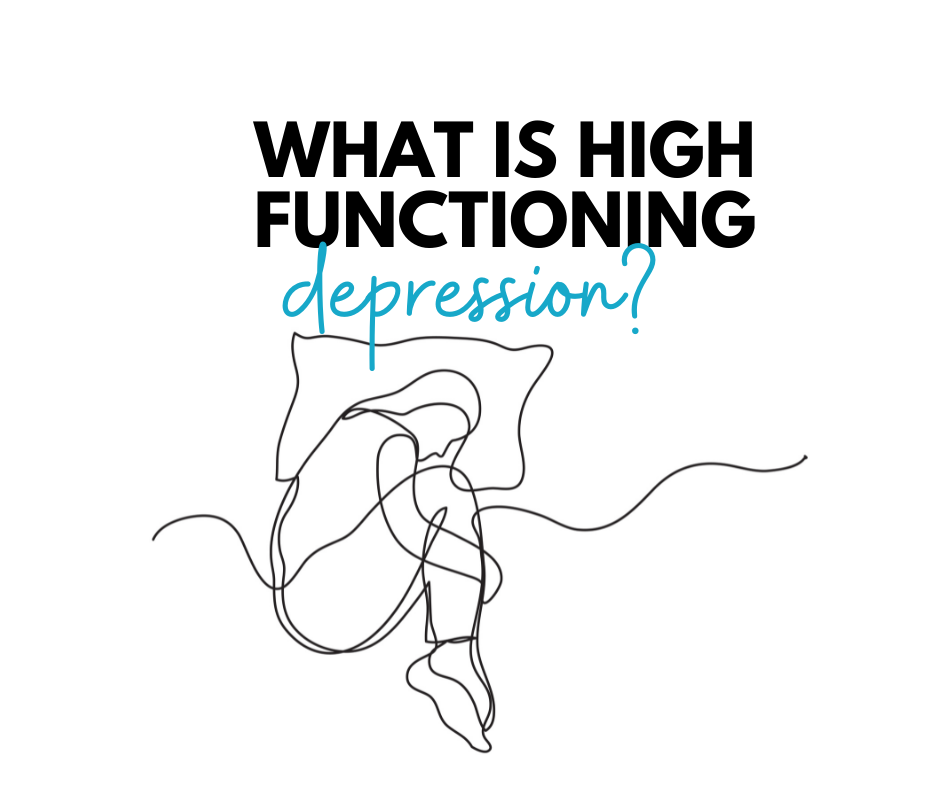Say the word “depression” and a certain collection of symptoms instantly comes to mind. Simply put, most people do not connect the concept of “high-functioning” with this condition. However, there is a type of depression called persistent depressive disorder (PDD). People with PDD experience the familiar fatigue and low energy as those with other forms of depression.
The big difference is that someone with PDD is able to push past the pain. This makes it hard for others to identify them as struggling. In turn, those with high-functioning depression are often not the type to ask for help (or even admit they need help).
Common Signs of High-Functioning Depression
Many signs on the list below could appear on any list of depression symptoms. What stands out with PDD is that the person displaying such signs is also going about their business. They are getting through the day as if nothing is going on. For example
- Classic depression symptoms like emptiness, hopelessness, sadness, and low self-esteem
- Dwelling on the past
- Appetite changes, eating noticeably more or less
- Loss of focus and concentration
- Angry outbursts, short temper
- Losing interest in activities that once excited you (but still doing some of them)
- Sleep disturbances from oversleeping to dealing with insomnia
Underneath the facade, you feel down and others may describe you as a “downer.” You do your best to appear normal and this causes more stress. You may self-medicate with alcohol or drugs.
What Causes High-Functioning Depression and Who Can It Affect?
Any version of depression can be the result of a combination of factors, e.g. genetic, chemical, and environmental. Some specific life experiences have been found to contribute to the development of this condition. These may include grief, trauma, substance abuse, or a high level of daily stress.
Someone with relatively mild depression symptoms may qualify as high-functioning as a result. However, certain personality traits can increase the risk of this particular variation. Most common, perhaps, is the perfectionist. They will do anything to avoid displaying anything that can be viewed as a weakness. They might push themselves to function and then use that as “proof” that they’re okay.
Other personality traits that increase the risk of PDD are:
- Those who feel guilty for complaining over something “so minor”
- Someone who doesn’t like to be helped or believes they won’t be helped if they ask for it
- Anyone who doesn’t believe they have enough to be depressed about
- People who tend to downplay personal problems
- An introvert who normally keeps things private and low-key
Why PDD and High-Functioning Depression Are So Dangerous
Anyone with depression is at a higher risk of self-harm or even suicide. How well there are getting through the day is not a factor in this reality. If the people in their life don’t pick up on the depression-related cues, it can feed into their belief that it’s not worth talking about. Without social support, the depression can worsen without anyone noticing.
Many effective treatment options exist for PDD in particular and depression in general. There is absolutely no reason to suffer in silence and shame. No one tries to become depressed in the same way no one breaks their own leg. Injuries and illnesses can happen to anyone. In such times, getting help from a qualified professional is crucial.
If any of the above information had you frowning and nodding your head, we really should talk. I have worked with countless clients who have recovered from depression — high-functioning or otherwise. Contact me to discuss your situation during a free and confidential consultation. You can heal, you can recover, and you can reclaim your life.




